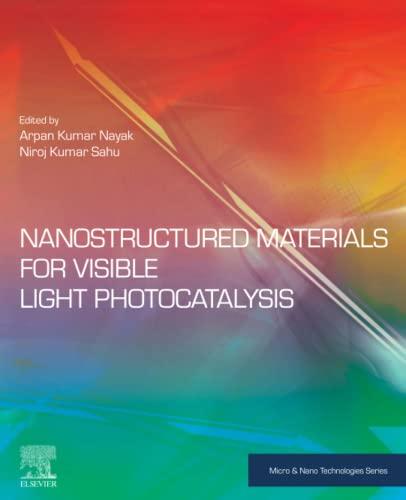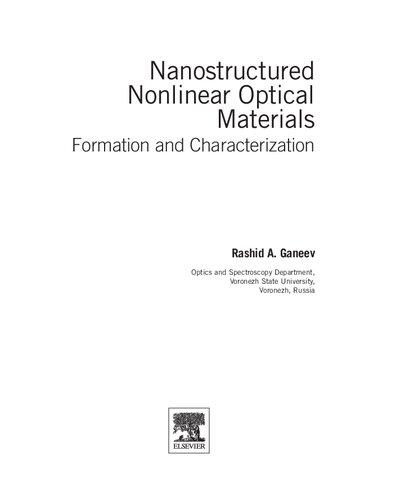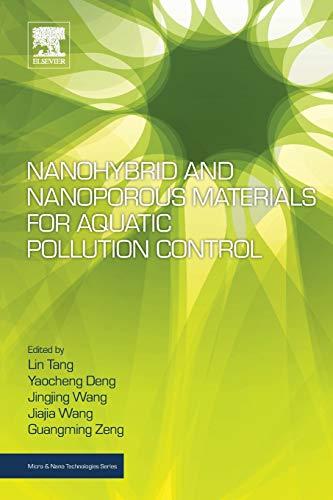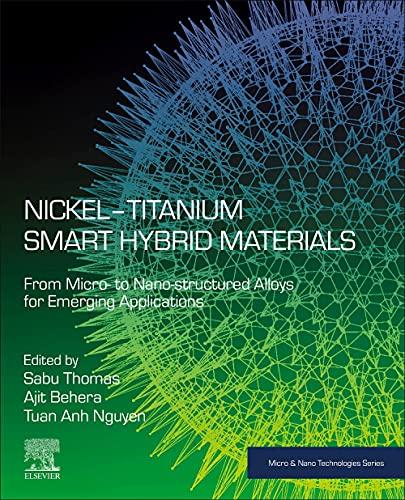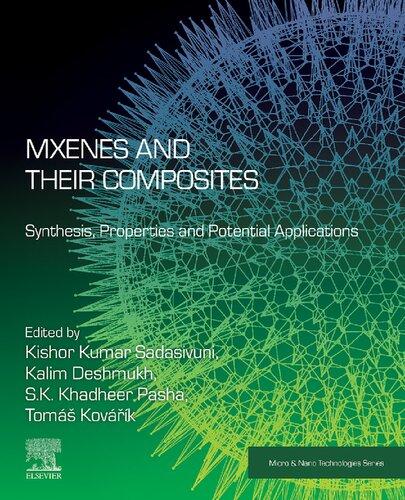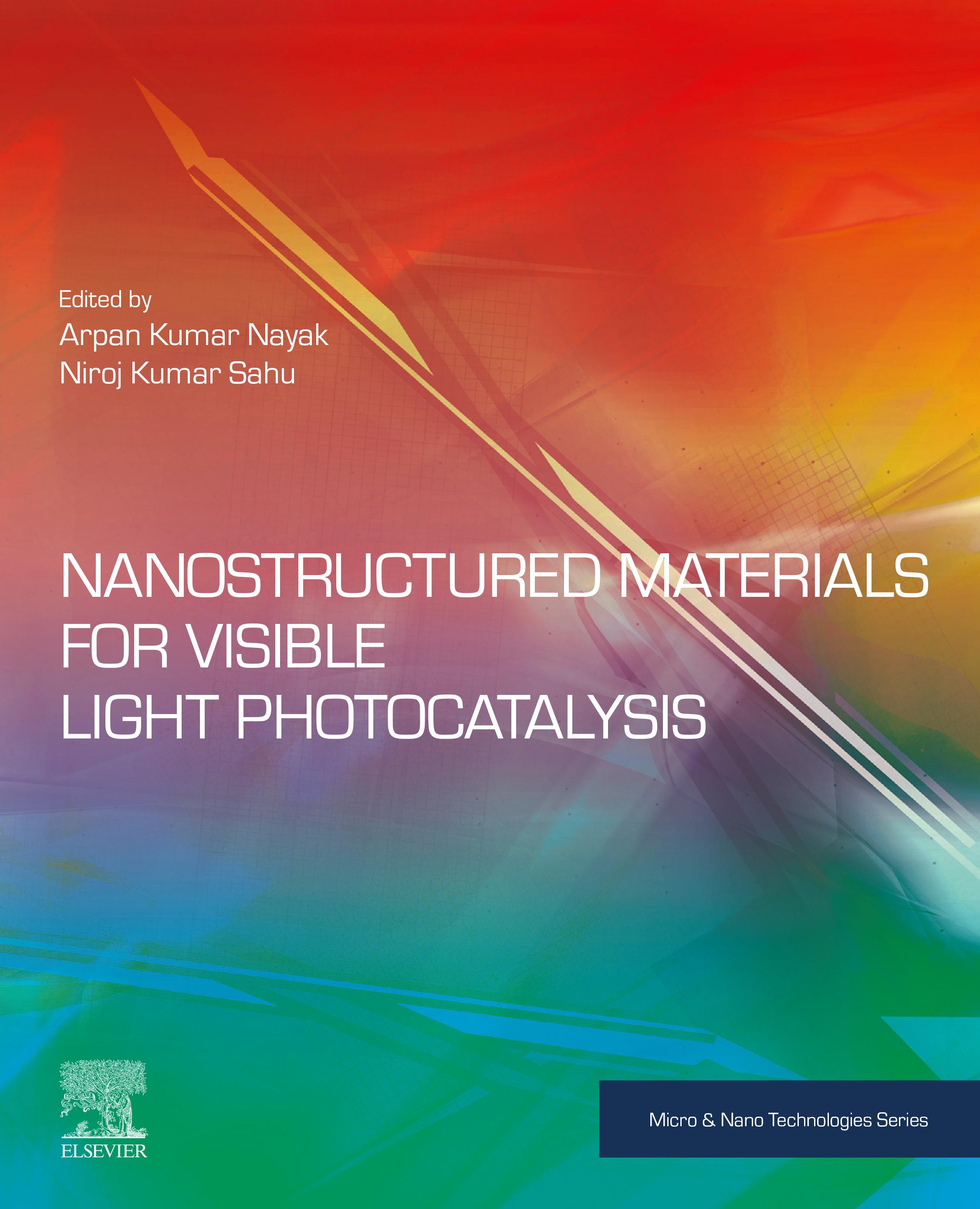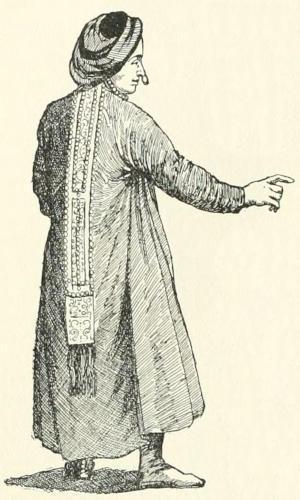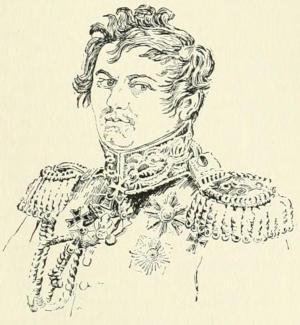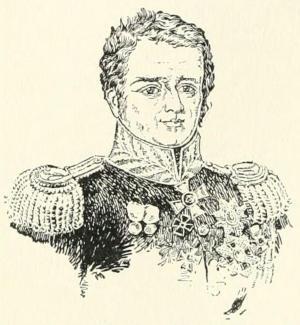NanostructuredMaterialsfor VisibleLightPhotocatalysis
MicroandNanoTechnologies
NanostructuredMaterialsfor VisibleLightPhotocatalysis
Editedby ArpanKumarNayak NirojKumarSahu
Elsevier
Radarweg29,POBox211,1000AEAmsterdam,Netherlands
TheBoulevard,LangfordLane,Kidlington,OxfordOX51GB,UnitedKingdom 50HampshireStreet,5thFloor,Cambridge,MA02139,UnitedStates
Copyright©2022ElsevierInc.Allrightsreserved.
Nopartofthispublicationmaybereproducedortransmittedinanyformorbyanymeans,electronicor mechanical,includingphotocopying,recording,oranyinformationstorageandretrievalsystem,without permissioninwritingfromthepublisher.Detailsonhowtoseekpermission,furtherinformationaboutthe Publisher’spermissionspoliciesandourarrangementswithorganizationssuchastheCopyrightClearance CenterandtheCopyrightLicensingAgency,canbefoundatourwebsite: www.elsevier.com/permissions
ThisbookandtheindividualcontributionscontainedinitareprotectedundercopyrightbythePublisher(other thanasmaybenotedherein).
Notices
Knowledgeandbestpracticeinthisfieldareconstantlychanging.Asnewresearchandexperiencebroadenourunderstanding, changesinresearchmethods,professionalpractices,ormedicaltreatmentmaybecomenecessary.
Practitionersandresearchersmustalwaysrelyontheirownexperienceandknowledgeinevaluatingandusingany information,methods,compounds,orexperimentsdescribedherein.Inusingsuchinformationormethodstheyshouldbe mindfuloftheirownsafetyandthesafetyofothers,includingpartiesforwhomtheyhaveaprofessionalresponsibility.
Tothefullestextentofthelaw,neitherthePublishernortheauthors,contributors,oreditors,assumeanyliabilityforanyinjury and/ordamagetopersonsorpropertyasamatterofproductsliability,negligenceorotherwise,orfromanyuseoroperationof anymethods,products,instructions,orideascontainedinthematerialherein.
LibraryofCongressCataloging-in-PublicationData
AcatalogrecordforthisbookisavailablefromtheLibraryofCongress
BritishLibraryCataloguing-in-PublicationData
AcataloguerecordforthisbookisavailablefromtheBritishLibrary
ISBN:978-0-12-823018-3
ForinformationonallElsevierpublications visitourwebsiteat https://www.elsevier.com/books-and-journals
Publisher: MatthewDeans
AcquisitionsEditor: SimonHolt
EditorialProjectManager: AndreaDulberger
ProductionProjectManager: KameshRamajogi
CoverDesigner: GregHarris
TypesetbySTRAIVE,India
1.Fundamentalsprincipleofphotocatalysis1
BarkhaRani,ArpanKumarNayak,andNirojKumarSahu
1Introduction1
2Basicprincipleforphotocatalyticreactions2
3Reactionpathwaysforphotogeneratedelectron-holepair4
4Fundamentalprinciplesbasedonthetypeofcatalyst5
5Factorsaffectingthephotocatalysisreaction7
6Strategiesforenhancementofphotocatalyticproperties ofsemiconductingmaterials11
7Conclusion16 References17
2.Nanomaterialsaspectsforphotocatalysis23
SarikaSinghandBrijeshKumarSingh
1Introductiontonanomaterialsandphotocatalysis23
2Mechanismofphotocatalysis25
3Influenceofdifferentparametersonphotocatalysis26
4Structuredphotocatalystsforremovalofcontaminants undervisiblelight29
5ZnOanditsmodifications34
6TiO2-andZnO-basedheterostructurephotocatalysts36
7Non-TiO2-andZnO-basednewvisiblelight-activecatalysts39
8Summary42 References42
3.Synthesismethodsofnanomaterialsforvisiblelight photocatalysis47
SutriptoMajumder
1Introduction47
2Synthesismethods48 3Hybridmethods97
4Conclusion102 References102
4.Carbon-basedmaterialsforvisiblelightphotocatalysis115
RajashreeSahooandArpanKumarNayak
1Introduction115
2Carbon-basedmaterials116
3Conclusionsandfuturescopes127 References128
5.Bismuthseriesphotocatalyticmaterialsforthetreatment ofenvironmentalpollutants135 ArpanKumarNayak
1Introduction135
2Bi-basednanostructuredmaterialssynthesis137
3Bi-basednanostructuredmaterialsforenvironmental remediation142
4Conclusionsandperspectives146 References146
6.Transitionmetaloxide-basedmaterialsfor visible-light-photocatalysis153 S.R.Meher
1Introduction153
2DifferentapproachesforvisiblelightphotocatalysisinTMOs153
3OtherTMOsforvisiblelightphotocatalysis169
4UnitaryTMOsasvisiblelightphotocatalysts (MnO2,Fe2O3,CuxO,WO3)171
5Conclusion172 References173
7.Chalcogenidesforvisiblelight-inducedphotocatalysis185
MohammadMansoobKhan
1Introduction185
2Classificationofchalcogenides185
3Chemistryofmetalchalcogenides188
4Light-activechalcogenidematerials189
5Conclusion193 References194
8.Phosphidesandnitridesforvisiblelightphotocatalysis197
RishikaChakrabortyandMukulPradhan
1Introduction197
2Semiconductormaterialsforphotocatalysis200
3Phosphidesandnitrides204
4Syntheticroutesforpreparationofphosphidesandnitrides207
5Mechanisticpathwayproposal220
6Challengesandfutureperspective234
7Conclusion235 References237
9.Rareearthdopednanomaterialsforvisible-light-driven photocatalyticdegradationoforganicdyes251 DiptiBidwai,NirojKumarSahu,andG.Swati
1Introduction251
2Modificationstoconventionalsemiconductors253
3Fluorescenceandphosphorescencemechanism257
4Conclusion342 References342
13.Facet-dependentnanostructuresforvisiblelight photocatalysis351
AbhayaKumarMishraandArpanKumarNayak 1Introduction351
2Cuprousoxidephotocatalysts354
3Bismuthvanadates(BiVO4)photocatalyst365 4Conclusions368 References368
14.Morphology-dependentvisiblelightphotocatalysis375 TridibKumarSinha 1Introduction375
2Generalmechanismofphotocatalysis378 3Morphology380
4Typesofphotocatalysts390
5Challengesinvisiblelightphotocatalysisandadvantages ofhierarchicalphotocatalysts395
6Morphology-dependentvisiblelightphotocatalysisfor environmentalandenergyissues396
7Futurescope401 8Conclusion403 References404
15.Greentechnologyforenvironmentalhazardremediation413 AjitBeheraandRanjanK.Mohapatra 1Whatisgreentechnology?413 2Principlesofsustainability414
3Benefitsfromgreentechnologies415
4Disadvantagesofgreentechnologies416
5Exploringthegoalsofgreentechnology416
6Greentechnologyusingphotocatalysts417
7Greennanostructuredphotocatalysts418
8Principlesandmechanismsofgreenphotocatalysis420
9Summary427 References427
16.Degradationofemergentpollutantsusing visiblelight-triggeredphotocatalysts433 SusantaKumarBhunia,VarshaUshaVipinachandran, andSathishRajendran
1Introduction433
2Emergingpollutants434
3Visiblelight-triggereddegradationofemergingpollutants437
4Summaryandfutureoutlook458 References459
17.Agriculturalapplicationofvisiblelightphotocatalyst467 Jih-HsingChang,MohanrajKumar,andShan-YiShen 1Introduction467
2Kindanddecompositionofpesticides470
3Factorsinthephotocatalyticactivities472
4Developmentofphotocatalystundervisiblelight irradiation478 5Summary482
6Presentandfuturescope483 References483
18.Polymer-basedmaterialsforvisiblelightphotocatalysis491 SaralasritaMohanty 1Introduction492
2Polymer-basedphotocatalyticmaterialsasefficient photocatalysts493
3Synthesisandcharacterizationofpolymer-based photocatalyticmaterials496
4Applicationofpolymer-basedmaterialsin visiblelight-inducedphotocatalysis500
5Conclusionsandfutureperspectives504 References505
19.Large-scalematerialsforvisiblelightphotocatalysis511 ManojPatowaryandHimaniKalita
1Introduction511
2Strategiesforfabricationofphotocatalystsona largescale512
3Applicationsoflarge-scaleproducedphotocatalysts517
4Photocatalystssynthesizedsofaronalargescale525
5Summaryandfutureperspective529 Acknowledgment529 References529
20.Industrialproblemsandsolutiontowardsvisiblelight photocatalysis535 MayaDevi,SwetapadmaPraharaj,andDibyaranjanRout 1Introduction535
2Photocatalysismechanism537
3Basicrequirementsforphotocatalysis539
4Classificationofphotocatalysts540
5Industrialproblems543
6Advancementsandsolutions557
7Summary560 References561
21.Currentstatus,researchgaps,andfuturescopefor nanomaterialstowardvisiblelightphotocatalysis569 SoJeongPark,JuHyunYang,MinHeeJoo,andYoungkuSohn 1Introduction569
2Fundamentalsandapplicationareasofphotocatalysts570
3Currenttrendsofphotocatalysts579
4Summaryandfuturescope600
Acknowledgments601 References601
Index609
Contributors
K.C.Barick
ChemistryDivision,BhabhaAtomicResearchCentre,Trombay;HomiBhabhaNationalInstitute, Anushaktinagar,Mumbai,India
AjitBehera
DepartmentofMetallurgicalandMaterialsEngineering,NationalInstituteofTechnology, Rourkela,India
SusantaKumarBhunia
DepartmentofChemistry,SchoolofAdvancedSciences,VelloreInstituteofTechnology,Vellore, India
DiptiBidwai
CentreforNanotechnologyResearch,VelloreInstituteofTechnology,Vellore,TamilNadu,India
RishikaChakraborty
DepartmentofChemistry,NationalInstituteofTechnologyMeghalaya,Shillong,Meghalaya, India
Jih-HsingChang
DepartmentofEnvironmentalEngineeringandManagement,ChaoyangUniversityof Technology,Taichung,Taiwan
MayaDevi
DepartmentofPhysics,SchoolofAppliedSciences,KIITDeemedtobeUniversity,Bhubaneswar, Odisha,India
JagritiGupta
ChemistryDivision,BhabhaAtomicResearchCentre,Trombay,Mumbai,India
P.A.Hassan
ChemistryDivision,BhabhaAtomicResearchCentre,Trombay;HomiBhabhaNationalInstitute, Anushaktinagar,Mumbai,India
MinHeeJoo
DepartmentofChemistry;DepartmentofChemicalEngineeringandAppliedChemistry, ChungnamNationalUniversity,Daejeon,RepublicofKorea
AbhijitN.Kadam
DepartmentofChemicalandBiologicalEngineering,GachonUniversity,Seongnam-si,South Korea
HimaniKalita
DepartmentofChemistry,SavitribaiPhulePuneUniversity,Pune,Maharashtra,India
MohammadMansoobKhan
ChemicalSciences,FacultyofScience,UniversitiBruneiDarussalam,BruneiDarussalam
MohanrajKumar
DepartmentofEnvironmentalEngineeringandManagement,ChaoyangUniversityof Technology,Taichung,Taiwan
JinhyeokLee
DepartmentofChemicalandBiologicalEngineering,GachonUniversity,Seongnam-si,South Korea
Sang-WhaLee
DepartmentofChemicalandBiologicalEngineering,GachonUniversity,Seongnam-si,South Korea
SutriptoMajumder
DepartmentofMaterialsScienceandEngineering,ChungnamNationalUniversity,Daejeon; DepartmentofPhysics,YeungnamUniversity,Gyeongsan,RepublicofKorea
S.R.Meher
DepartmentofPhysics,SchoolofAdvancedSciences,VelloreInstituteofTechnology,Vellore, India
AbhayaKumarMishra
MaterialsScienceCentre,IndianInstituteofTechnology,Kharagpur,WestBengal,India
SaralasritaMohanty
SchoolofPhysicalSciences,NationalInstituteofScienceEducationandResearch,HBNI,Jatni, India
RanjanK.Mohapatra
DepartmentofChemistry,GovernmentCollegeofEngineering,Keonjhar,Odisha,India
ArpanKumarNayak
DepartmentofPhysics,SchoolofAdvancedSciences,VelloreInstituteofTechnology,Vellore, TamilNadu,India
SandipV.Nipane
DepartmentofChemistry,Smt.KasturbaiWalchandCollege,Sangli,MS,India
Another random document with no related content on Scribd:
General Tolle is here and I shall send him to Mohilev to bear the news to Count Saken. I am looking out for a trustworthy person for the same commission to Tultchin and to Ermolov. In a word, I hope to be worthy of my calling, not in fear and mistrustfulness, but in the hope that even as I fulfil my duty so will others fulfil their duty to me. But if anywhere anything is brewing and you hear of it, I authorise you to go at once where your presence is necessary. I rely entirely upon you and give you leave beforehand to take all the measures you deem necessary. The day after to-morrow if I am alive I will send you, I do not know by whom, information as to how matters have passed off; on your part do not leave me without news of how everything is going on around you, especially with Ermolov. I again repeat that here until now everything is incomprehensibly quiet, but calm often precedes a storm. Enough of this, God’s will be done! In me there must only be seen the vicar and executor of the late emperor’s will and therefore I am ready for everything. I shall ever be your sincere well wisher,
NICHOLAS.
THE ACCESSION OF NICHOLAS
The czarevitch’s decisive answer was brought by Belussov, not through Riga, but by the Brest-Lithuani road; and therefore the grand duke Michael Pavlovitch was still in ignorance of the events at Nennal. The emperor Nicholas immediately sent an express after him commanding him to hasten to St. Petersburg. The return of the grand duke to the capital where his presence was of urgent necessity was thus by chance delayed.
Nicholas had now to occupy himself with the composition of his manifesto; the inexplicable had to be explained and it presented a task of no little difficulty: Karamzin and Speranski were set to work upon it. The emperor Nicholas signed the manifesto on the 25th of December, but dated it the 24th, as the day on which the question of his accession had been definitely settled by the czarevitch. It was proposed to keep the manifesto secret until the arrival of the grand duke Michael, but it was decided that the troops should take the oath of allegiance on the 26th of December; meanwhile notifications were sent to the members of the council of state, calling upon them to assemble on Sunday, December 25th, at eight in the evening, for a general secret meeting.
When the council of state had assembled at the hour designated, Prince Sopukhin announced that the grand duke Michael would be present at the sitting. The hours passed in anxious expectation; midnight approached and the expected arrival of the grand duke did not take place. Then Nicholas decided to be present at the sitting alone. Taking the place of the president, Nicholas himself began to read the manifesto announcing his acceptance of the imperial dignity in consequence of the persisted rejection of it by the czarevitch Constantine Pavlovitch. Then the emperor ordered that the czarevitch’s rescript, addressed to Prince Sopukhin, president of the council, should be read. The 26th of December, 1825, had come. Commands had been issued that on that day all persons having access to the court should assemble at the Winter Palace for a Te Deum; eleven o’clock was the hour first named, but this was afterwards changed to two. Circumstances arose, however, which postponed the Te Deum to a still later hour. The members of the secret society decided to take advantage of the end of the interregnum and the approach of the new oath of allegiance in order to incite the troops to rebellion and to overthrow the existing order of things in Russia. The secrecy in which the negotiations with Russia had been enveloped had given occasion for various rumours and suppositions, and for the spread of false reports which occasioned alarm in society and especially in the barracks: all this favoured the undertakings and designs of the conspirators.
The only issue from the position that had been created by Nicholas in a moment of chivalrous enthusiasm “undoubtedly noble, but perhaps not entirely wise,” would have been the arrival of the grand duke Constantine in the capital with the object of publicly and solemnly proclaiming his renunciation of the throne. But the czarevitch flatly refused to employ this means of extricating his brother from the difficult position in which he placed himself; Constantine considered that it was not for him to suffer from the consequences of an imprudence which was not his, and the danger of which might have been averted if matters had not been hurried on, and if he had been previously applied to for advice and
instructions. Thus led into error, some of the lower ranks of the guards’ regiments refused to take the oath of allegiance to Nicholas Pavlovitch, and assembled at the Pelrovski square, before the senate buildings, appearing as though they were the defenders of the lawful rights of the czarevitch Constantine to the throne.
Meanwhile distinguished persons of both sexes began to drive up to the Winter Palace. Amidst the general stir and movement going on in the palace, there sat isolated and immoveable three magnates, “like three monuments,” writes Karamzin: Prince Lopukhin, Count Araktcheiev, and Prince A. B. Kurakin. At the time when the military men had already gone out on the square, Count Araktcheiev, as might have been expected, preferred to remain in the palace. “It was pitiful to look at him,” writes V. R. Martchenko in his Mémoires.
The rioters were stubborn for a long time and would not yield to exhortation; Count Miloradovitch fell mortally wounded. It began to grow dusk. Then the emperor Nicholas, at last convinced of the impossibility of pacifying the rioters without bloodshed, gave orders with a breaking heart for the artillery to fire. A few grape-shot decided the fate of the day; the rioters were dispersed, and tranquillity at once reigned in the capital.
The Te Deum announced could take place only at half past six. The troops bivouacked round the palace. “Dear, dear Constantine,” wrote the emperor the same evening to the czarevitch, “your will is fulfilled: I am emperor, but at what price, my God!—at the price of the blood of my subjects.” Arrests were made during that night and investigations pursued to discover the leaders of the revolt. And thus in the troubles of the 26th of December, the 1st of December, 1825, was terribly recalled. “The day was one of misfortune for Russia,” writes Prince Viasenski, “and the epoch which it signalised in such a bloody manner was an awful judgment for deeds, opinions, and ideas, rooted in the past and governing the present.” According to the words of Karamzin, on that day Russia was saved from a calamity “which, if it had not destroyed her, would certainly have torn her to pieces.” “If I am emperor even for an hour, I will show
that I was worthy of it”; thus spoke Nicholas on the morning of December 26th to the commanders of the guard regiments assembled at the Winter Palace; and on that awful day he triumphantly justified his first and impressive words.
TRIAL OF THE CONSPIRATORS (1826 A.D.)
The emperor Nicholas gave all possible publicity to the proceedings against the secret societies, the Southern, Northern, the United Slavonians, and the Polish; then the whole matter was transferred to the supreme criminal court, which had to pronounce sentence on the principal participators in the conspiracy. Of the accused, Rileeks, Muraviev-Alostob, Bestuzhev-Riumin, Pesteb, and Kakhovski were condemned to death, and the remaining members of the secret societies brought before the court were exiled to Siberia or other places of incarceration.
[1826 A.D.]
No one had expected such a termination to the affair. During the whole of Alexander’s reign there had not been one case of capital punishment, and it was looked upon as entirely abolished. “It is impossible to describe in words the horror and despair which have taken possession of all,” writes a contemporary and eye witness of the events of 1826 in Moscow. This frame of mind was reflected in the coronation ceremonies. The emperor Nicholas appeared extremely gloomy; the future seemed more sad and fuller of anxiety than ever; all was in sharp contrast to the enthusiasm and hopes that had accompanied the coronation of Alexander in 1801.
THE CORONATION OF NICHOLAS (1826 A.D.)
Immediately after the termination of the trial of the Dekabrists, the court proceeded to Moscow for the approaching coronation, which took place on the 3rd of September. Previously the emperor was rejoiced at the unexpected arrival of the grand duke Constantine Pavlovitch. According to Benkendorf “the czarevitch’s appearance
was a brilliant public testimony of his submission to the new emperor and of his conscientious renunciation of the throne; it was at the same time a precious pledge of the harmony which bound together all the members of the reigning family, a harmony conducive to the peace of the empire. The public was delighted and the corpsdiplomatiquecompletely astounded. The people expressed their satisfaction to the czarevitch by unanimous acclamations, whilst the dignitaries of the state surrounded him with marks of respectful veneration.”
The day of the coronation was signalised by an important reform in the administration of the court; the ministry of the imperial court was created, and confided to Prince P. M. Volkonski. Thus the old and tried companion of the emperor Alexander I again occupied the post of a trusty dignitary by the side of his successor. Prince Volkonski remained minister of the court until his decease, which took place in 1852. Amongst the favours and the mitigations of punishments which were granted on the 3rd of September, the state criminals who had lately been condemned were not forgotten; by special ukases the sentences of all those sent to the galleys, to penal settlements, and hard labour were mitigated. Those who had been sent to the Siberian, Orenburg, and Caucasian garrisons, both with and without deprivation of the rights of nobility, were enrolled in the regiments of the Caucasian corps.
During the emperor’s stay in Moscow, the poet Pushkin, who had been banished to the village of Mikhailovski, was recalled. From that moment he regained his lost liberty, besides which the emperor Nicholas said to him: “In future you are to send me all you write— henceforth I will be your censor.”
CHANGES IN INTERNAL ADMINISTRATION
On the 18th of October, 1826, the emperor Nicholas returned to St. Petersburg; although his accession to the throne did not constitute the opening of a new era for Russia, yet certain changes
were made in the system of administration which had prevailed during the last decade of the reign of Alexander I. After Count Araktcheiev had been relieved of the management of the general affairs of the state, it was to be foreseen that he would not remain long at the head of the direction of the military settlements. And thus it turned out. In the spring of 1826 Count Araktcheiev, on account of illness, was given leave to go abroad. In the report presented by him on this occasion to the emperor he announced to him economies of more than 32,000,000 rubles made on the military settlements, and concluded his epistle by observing, “Those impartial judges—posterity and the future—will pronounce a just sentence on all things.”
On the return of Count Araktcheiev in the autumn from his travels abroad he did not again take up his duties. In accordance with a ukase which then followed, the staff office of the military settlements was united to the general staff of his imperial majesty, under the jurisdiction of its adjutant-general Baron Diebitsch. At the same time the Novgorod military settlement passed under the entire direction of General Prince Schahovski, who was nominated commander of the grenadier corps; the Kherson and Iekaterinoslav settlements were put under the supervision of their chief, Count Vitt (who was also commander of a separate corps), while the settlements in the villages of the Ukraine and Mohilev governments remained under the jurisdiction of their former chiefs, who bore the rank of commanders of divisions. Count Araktcheiev, when he had finally bidden adieu to his administrative career, settled on his Georgian estates, where he died in 1834.
Having delivered Russia from the administrative guardianship of Count Araktcheiev, the emperor Nicholas, in addition, delivered Russian instruction from the influence of Michael Leontievitch Magnitzki. On the 18th of May, 1826, a ukase was issued in which it was stated that “the curator of the University of Kazan and of its educational district, the actual councillor of state Magnitzki, is by our command relieved of his functions and of his position as member of the administration of schools.” But the matter was not limited to this
ukase. Magnitzki continued to live in Kazan and in accordance with his character he continued to intrigue as usual and indirectly to influence the university he had left. General Jeltukhin, who had been commissioned to make a detailed revision of the Kazan University, brought this fact to the emperor’s knowledge. Nicholas’ reply was rapid and decisive; a courier was sent with orders to the governor to arrest Magnitzki and send him to Revel under the surveillance of the commandant. Magnitzki lived there six years, having given his promise not to absent himself.
An equally sad fate overtook the champion and imitator of Magnitzki, Dmitri Pavlovitch Runitch, who had filled the office of curator of the St. Petersburg educational district. By a ukase of the 7th of July, 1826, Runitch was deprived of his functions and of the position of member of the chief administration of schools, for his incompetence in the matter of the direction of the St. Petersburg educational district. The requital experienced by Runitch for his educational labours was a terrible one; he languished beneath the consequences for sixteen years and died in 1860 in the conviction that he had formerly saved Russia, and was suffering for the good work he had accomplished in the University of St. Petersburg.
Reforms in the Administration ofJustice
The lamentable condition of the administration of justice in Russia was one of the first subjects to which the careful attention of the emperor Nicholas was directed. In a speech pronounced by the sovereign many years later, in 1833, before the council of state, Nicholas Pavlovitch thus expressed himself:
“From my very accession to the throne I was obliged to turn my attention to various administrative matters, of which I had scarcely any notion. The chief subject that occupied me was naturally legislation. Even from my early youth I had constantly heard of our deficiencies in this respect, of chicanery, of extortion, of the insufficiency of the existing laws or of their admixture through the extraordinary number of ukases which were not infrequently in
contradiction to one another. This incited me from the very first days of my reign to examine into the state of the commission appointed for the constitution of the laws. To my regret, the information presented to me proved to me that its labours had remained almost fruitless. It was not difficult to discover the cause of this: the deficient results proceeded chiefly from the fact that the commission always directed its attention to the formation of new laws, when in reality the old ones should have been established on a firm foundation. This inspired me above all with a desire to establish a definite aim towards which the government must direct its actions in the matter of legislation; from the methods proposed to me I selected one in entire opposition to the former methods of reform. Instead of drawing up new laws, I commanded that first those which already existed should be collected and set in order, whilst I took the matter itself, on account of its great importance, under my own immediate direction and closed the previous commission.”
With this object was formed and opened on the 6th of May, 1826, the “second section of his imperial majesty’s own chancery.” M. A. Balongianski was appointed chief of the second section, but in reality the work itself was confided to Speranski. The emperor’s choice rested on the latter, out of necessity, as he did not find anyone more capable around him. When Balongianski was appointed chief of the second section, the emperor, in conversing with his former tutor, said to him, speaking of Speranski: “See that he does not play any pranks, as in 1810.” Nevertheless, in proportion to Speranski’s successful accomplishment of the work confided to him, the emperor Nicholas’ prejudices against him gradually softened and finally gave way to sincere favour and full confidence. All the accusations and calumnies directed against Speranski were, in accordance with the emperor’s own expression, “scattered like dust.”
Thus the emperor Nicholas in his almost involuntary choice was favoured by a peculiarly fortunate chance and could hardly have found a person better fitted for the accomplishment of the work he had planned. The results of Speranski’s fresh efforts, under completely different circumstances from those against which he had
formerly contended, were the “complete collection of laws,” and a systematic code.
Even before the termination of the trial of the Dekabrists, the emperor Nicholas took another important measure, which left an imprint on all the succeeding years of his reign and is directly connected with the events of the 26th of December. On the 15th of July, 1826, a supreme edict was issued in the name of the minister of the interior Lanskoi, by which the private chancery of that ministry was abolished and transformed into the third section of his imperial majesty’s own chancery. In fulfilment of this ukase, it was prescribed that the governors of provinces, in matters which entered within the sphere of the former division, should no longer present their reports to the ministry of the interior, but should submit them directly to his majesty.
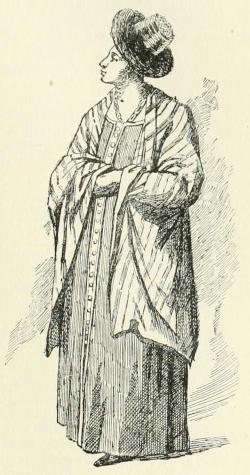
Some days before, on the emperor Nicholas’ birthday, the 6th of July, a supreme order appeared naming the chief of the first cuirassier division, Adjutant-general Benkendorf, chief of the gendarmerie and commandant of the emperor’s headquarters; to him was confided the direction of the third section. Adjutant-general Benkendorf explains in his memoirs in the following manner the reasons for establishing the institution confided to his direction: “The emperor Nicholas aimed at the extirpation of the abuses that had crept into many branches of the administration, and was convinced by the sudden discovery of the conspiracy which had stained the first moments of the new reign with blood, of the necessity of a
MARRIED WOMAN OF VALDAI
universal and more diligent surveillance. The emperor chose me to organise a higher police, which should protect the oppressed and guard the nation against conspiracies and conspirators. Never having thought of preparing myself for this sort of service, I had hardly the most superficial understanding of it; but the noble and beneficent motives which inspired the sovereign in his creation of this institution and the desire to be of use to him, forbade me to evade the duty to which his high confidence had called me. I set to work without delay and God helped me to fulfil my new duties to the satisfaction of the emperor and without setting general opinion against me. I succeeded in showing favours to many, in discovering many conspiracies, and averting much evil.” With the creation of the new third section, the committee of the 13th of January, 1807, established by the emperor Alexander, became superfluous; and on the 29th of January a ukase was issued closing it.
The disturbances of the year 1825 did not pass without leaving traces on the peasant population; a momentary confusion ensued, freedom was talked of, and disorders arose in some provinces—a phenomenon often seen in previous times. The movement amongst the peasants incited the emperor Nicholas to publish, on the 24th of May, 1826, a manifesto in which it was declared that all “talk of
A WOMAN (SAILOR) OF THE NOGAI TRIBE
exempting the villagers in the state settlements from paying taxes and of freeing landowner’s peasants and menials from subjection to their landowners are false rumours, imagined and spread by evil intentioned persons out of mere cupidity with the object of enriching themselves through these rumours at the expense of the peasants, by taking advantage of their simplicity.” It was further said in the manifesto that all classes throughout the empire must absolutely submit to the authorities placed over them, and that disturbers of the public tranquillity would be prosecuted and punished in accordance with the full severity of the laws. It was commanded that the manifesto should be read in all the churches and at the markets and fairs during a space of six months; the governors of provinces were sternly admonished to be watchful in anticipating disorders.
If, however, the emperor Nicholas was forced by circumstances to promulgate this punitive manifesto, he also issued two rescripts in the name of the minister of the interior, enjoining upon the nobility behaviour towards their peasants, which should be in accordance with the laws of Christianity, thus clearly expressing his desire to protect the peasant against the arbitrariness and tyranny of the landowners. “In all cases,” wrote the emperor: “I find it, and shall ever find it, better to prevent evil, than to pursue it by punishment when it has already arisen.”
Finally the solicitude of the emperor Nicholas for the peasant classes manifested itself by yet another action. On the 18th of December, 1826, a special secret committee was formed to which was confided the inspection of the entire state organisation and administration, with the order to represent the conclusions it arrived at as to the changes deemed necessary; the labours of the committee were to be directed also to the consideration of the peasant question. Besides this the emperor did not leave without attention what had been said by the Dekabrists, during the time of their examination before a committee of inquiry, in regard to the internal conditions of the state in the reign of Alexander I. The emperor ordered a separate memorandum of these opinions to be
drawn up for him and often perused this curious document, from which he extracted much that was pertinent.b
WAR WITH PERSIA (1826-1828 A.D.)
The shah of Persia thought he saw in the change of rulers and the troubles by which it was accompanied circumstances favourable to the recovery of the provinces ceded to Russia by the Treaty of Gulistan. In August, 1826, he ordered his troops to move forward. The solemnity of his coronation, which was then being celebrated and whose splendour was enhanced by the presence of the czarevitch, did not prevent Nicholas from promptly organising the defence of the empire. A few weeks afterwards General Paskevitch defeated the Persians at Ielisavetpol, and in the following year, transferring the theatre of war to the enemy’s territory, he seized the celebrated convent of Etchmiadzine, the seat of the Armenian patriarch, and Erivan, one of the great towns of Armenia; he moreover penetrated as far as Tauris, capital of the Azerbaijan and residence of the prince royal, Abbas Mirza. Then the shah asked for peace. It was signed at Turkmantchaï, the 22nd of February, 1828, and advanced Russia as far as the line of the Araxes, by giving up to her the provinces of Erivan and Nakhitchevan.
[1826-1828 A.D.]
WAR WITH TURKEY (1828-1829 A.D.)
This treaty was concluded, to the great regret of Persia, when the war with Turkey broke out. This war had been threatening for years; for, deeply affected by the violences to which the Greeks in the Ottoman Empire had been exposed ever since the hetaerist insurrection of 1821, and by the martyrdom which the Greek patriarch had been made to suffer, Alexander left the sword in its sheath only out of deference to the members of the Holy Alliance. His successor was thoroughly determined no longer to subordinate the direction of his cabinet’s policy to the interested views of these
princes and to their fears, though it is true that the latter were well founded. The Divan, by signing the Treaty of Akerman (October 6th, 1826), had momentarily averted the storm which was ready to burst; but still more irritating disputes had afterwards arisen. The conclusion of the Treaty of London of the 6th of July, 1827, in virtue of which France, England, and Russia gave existence to a Christian kingdom of Greece placed under their common protection, was shortly followed by the naval battle of Navarino, fought on the 20th of October of the same year by the combined fleets of the three powers, against Ibrahim Pasha, commander-in-chief of the Egyptian forces in the Morea; and in this memorable conflict, expected by no one, but a subject of joy to some whilst judged untoward by others, the whole of the navy which the Porte still had at its disposal was destroyed. Very soon Mahmud II, yielding to the national desire, let it be understood that he had never had any intention of lending himself to the execution of a treaty in virtue of which Moldavia, Wallachia, and Servia were almost as much the czar’s vassals as his own. This was the beginning of a rupture, and Nicholas answered it by a declaration of war, which appeared June 4th, 1828, when his army had already crossed the Pruth.
The campaign of 1828, which accomplished nothing more than the taking of Braila and Varna, did not give a high idea of the strength of Russia; and when the emperor made up his mind to take part in it in person, his presence wrought no change in the feebleness of the results. But it was not the same with the campaign which followed. Not only did the Russians again pass the Danube, but after having beaten the grand vizir, Reschid Pasha, at Koulevtcha, on the 11th of June, Diebitsch marched them across the Balkans for the first time, a feat which won him the name of Sabalkanski, and proceeded straight to Adrianople, where he was scarcely more than two hundred kilometres (about 125 miles) from the Ottoman capital. At the same time Paskevitch took Erzerum in Asia, and the two generals would doubtless have joined hands in Constantinople but for the efforts of diplomacy and the fear of a general conflagration. For Russia was already too powerful; she had been allowed more
than was compatible with the policy of the system of balance, no doubt from the fear of incurring a grave responsibility by troubling the peace of Europe. But a prospect like that of the occupation by Russia of Constantinople and the Straits silenced this fear.
Austria was ready to send her troops to the help of the Turks, and the English also seemed likely to declare for the vanquished. It was therefore necessary to come to a halt. Russia reflected that, after all, “the sultan was the least costly governor-general she could have at Constantinople,” and lent an ear to moderate conditions of peace. Nevertheless, if the Treaty of Adrianople, signed September 14th, 1829, delivered nothing to her in Europe save the mouths of the Danube, in itself a very important point, it enlarged her territories in Asia by a part of the pashalik of Akhalzikh, with the fortress of that name, besides abandoning to her those of Anapa and Pothi on the Black Sea; it considerably strengthened Muscovite influence in the principalities, and still further weakened Turkey, not only morally but also materially by the great pecuniary sacrifices to which she had to subscribe. That power, once so formidable, was henceforth at the mercy of her northern neighbour, the principal instrument of her decay.
[1829 A.D.]
THE POLISH INSURRECTION (1830-1831 A.D.)
[1830 A.D.]
But Russia was in her turn rudely shaken by the insurrection in Poland, always her mortal enemy after she had ceased to be her rival.c
It was in Moscow that the emperor Nicholas received news of the further progress of the Belgian revolution, in consequence of which the king of the Netherlands found himself obliged to ask for the assistance of his allies by virtue of the existing treaties. The emperor at once despatched orders to Count Tchernishev, Field-marshal Saken, and the czarevitch to place the army on a war footing. The czarevitch was not pleased at the martial turn given to the
diplomatic negotiations; still more dissatisfied was the Polish Society of that time, which sympathised with the revolution of July; neither was the army in sympathy with the approaching campaign, which would bring it into armed collision with France in the name of the principles of the Holy Alliance. Although tranquillity apparently reigned in Warsaw, yet the secret societies continued to carry on their destructive work with success.
Various ominous signs of the approaching catastrophe were not, however, wanting; but the czarevitch continued to lull himself with impossible hopes that all was peaceful and tranquil and would remain so. As to the European powers allied to Russia, they did not enter into the matter with such decided zeal. In the present case it was the Russian autocrat alone who was ready with entire disinterestedness to take up the defence of the infringed lawful order. The other powers found it incomparably more expedient to have recourse to the cooperation of diplomatic remedies; the result was that, instead of an armed intervention, a general European conference for the settlement of the Belgian question by peaceful means took place in London.
(1785-1831)
Count Diebitsch was still in Berlin awaiting the termination of the negotiations confided to him, when they were suddenly broken off by an event upon which the field-marshal had not in the least calculated at the given moment. On the 3rd of December, 1830, Diebitsch received from the Prussian minister, Count Berastorf, news of the revolution which had taken place in Warsaw on the 29th of
COUNT DIEBITSCH-SABALKANSKI
November: the Polish army, forming a prepared coalition, had taken up arms against Russia. There remained but one thing for Diebitsch to do and that was to hasten to St. Petersburg as quickly as possible. Meanwhile in St. Petersburg the emperor Nicholas had received only the report of the czarevitch concerning the rising of the troops and of inhabitants of Warsaw on the evening of the 7th of December, 1830.
On the next day a parade of the Preobrajenski regiment was appointed to take place, and as usual the emperor came to the riding school. At first everything proceeded in the usual manner; there were even no traces of inward agitation manifest upon the handsome face with its regular, classic profile, which preserved its habitual expression of majestic nobility. At the termination of the parade the emperor rode into the middle of the riding school, called the officers around him, and personally communicated to them the intelligence of the Warsaw rebellion: “I have already made arrangements that the troops designated by me should move on Warsaw, and if necessary you too shall go, to punish the traitors and re-establish order and the offended honour of Russia. I know that under every circumstance I can rely upon you,” said the emperor. A unanimous outburst of indignation momentarily seized upon all present and then enthusiastic cries resounded: “Lead us against the rebels: we will revenge the offended honour of Russia.” They kissed the emperor’s hands and feet and the hem of his garment with shouts and cheers. The outburst of indignation was so violent that Nicholas considered it necessary to moderate it, and with the majesty that was natural to him he reminded the officers surrounding him that not all the Poles had broken their oath; that the ringleaders of the insurrection must be punished, but that vengeance must not be taken on the people: that the repentant must be pardoned and hatred not allowed.
From the subsequent reports of the grand duke the emperor learned that the czarevitch had permitted the portion of the Polish army that remained with him to return to Warsaw; in exchange for this the deputies who came to the czarevitch promised him and the
Russian detachment a free passage to the frontiers of the empire. It was decided that a sufficient number of troops should be concentrated in the Polish frontier to allow of decisive measures being taken against the insurgents. Count Diebitsch was appointed commander-in-chief of the acting army, whilst the office of chief of the staff was filled by Count Tolle.
When the czarevitch reached the Russian frontier he wrote as follows to the emperor Nicholas: “And now the work of sixteen years is completely destroyed by a set of ensign-bearers, young officers, and students. I will not further enlarge on the matter, but duty commands me to bear witness to you that the landed proprietors, the rural population, and in general all holders of property of any kind are up in despair over this. The officers and generals as well as the soldiers are unable to keep from joining the general movement, being carried away by the young people and ensign-bearers who led everyone astray. In a word, the position of affairs is extremely bad, and I really do not know what will come of it. All my measures of surveillance have led to nothing, in spite of the fact that everything was beginning to be discovered. Here are we Russians at the frontier, but great God in what a condition!—almost barefoot, for we all came out as if at the sound of an alarm, in the hopes of returning to barracks, whilst instead awful marches have had to be made. The officers have been deprived of everything and have almost nothing with which to clothe themselves. I am broken hearted; at the age of fifty-one and a half years I never thought to finish my career in this lamentable manner after thirty-five and a half years of service. I pray to God that the army to which I have devoted sixteen years of my life may be brought to reason, and return to the path of duty and honour, acknowledging its previous errors, before coercive measures have to be taken. But this is too much to expect from the age in which we live, and I greatly doubt the realisation of my desires.”
Any agreement with Poland became daily more impossible and both sides prepared for war. On the 17th of December the emperor Nicholas’ proclamation to the Polish army and nation was issued, and
on the 24th a manifesto was published offering means of reconciliation to all those who returned to their duty. Meanwhile General Chlopicki was installed as dictator in Warsaw, but he was unable to save Poland from a rupture with Russia. Two deputies were sent to St. Petersburg to enter into negotiations with the emperor Nicholas; they were the minister of finance, Prince Lubetzki and a member of the diet, Count Ezerski. But neither could these negotiations avert the bloody events of the year 1831. “It is hard to foresee the future,” wrote the emperor to the czarevitch; “but weighing the relative probabilities of success, it is difficult to suppose that the new year will show itself more distressing for us than the year 1830; God grant that I may not be mistaken. I should like to see you peacefully settled in your Belvedere and order re-established throughout; but how much there yet remains to be accomplished before we are in a condition to attain to this! Which of the two must perish—for it appears inevitable that one must perish, Russia or Poland? Decide for yourself. I have exhausted all possible means in order to avert such a calamity all means compatible with honour and my conscience—but they are exhausted. What remains for me to do?”
Soon the diet assembled in Warsaw took a decision which completed the rupture between Poland and Russia. On the 25th of January, 1831, the diet declared the Romanov dynasty to be deprived of the throne of Poland. The Poles themselves thus unbound the hands of the emperor, and the duel between Russia and Poland became inevitable. The emperor replied to the challenge by a manifesto in accordance with which the Russian troops crossed the Polish frontier, and on the 25th of February a decisive battle took place before Prague at Grokhov, by which the Polish army was obliged to retreat to Warsaw with a loss of twelve thousand men.
[1831 A.D.]
But Count Diebitsch did not recognise the possibility of taking advantage of the victory gained, and which would have been inevitably completed by the occupation of the Polish capital; and Sabalkanski was not fated to become prince of Warsaw. The Polish
troops retreated unhindered across the only bridge to Warsaw; the new Polish commander-in-chief Skrjinetzski set out to reorganise the army, the rising spread even to the Russian governments, and the campaign, against all expectations, dragged on for six months. Meanwhile it was a war upon which depended, according to the expression used by the emperor, “the political existence of Russia.”
On the 26th of May Diebitsch gained a second victory over the Polish army, which also terminated by the favourable retreat of the latter; and on the 13th of June, the emperor found occasion to write to his field-marshal: “Act at length so that I can understand you.” The letter was however not read by Count Diebitsch, for on the 10th of June the field-marshal suddenly died of cholera in the village of Kleshov near Pultiusk. He was replaced by Field-marshal Count Paskevitch-Erivanski, who was as early as April, 1831, called by the emperor from Tiflis to St. Petersburg. It was decided to cross the lower Vis-Suta and move towards Warsaw. The czarevitch Constantine outlived Count Diebitsch only by a few days. He also died suddenly of cholera at Vitebsk, in the night between the 26th and 27th of June of the year 1831.
F
IELD-MARSHAL PASKEVITCH
The Polish insurrection from that time daily grew nearer to its definitive conclusion; it was determined by the two days’ storming of Warsaw, which took place on the 7th and 8th of September. Finally Field-marshal Paskevitch was able to communicate to the emperor the news that “Warsaw is at the feet of your imperial majesty.”
Prince Suvorov, aide-de-camp of the emperor, was the bearer of this intelligence to Tsarskoi Selo on the 16th of September.
(1782-1856)
Nicholas wrote as follows to his victorious field-marshal: “With the help of the all-merciful God, you have again raised the splendour and glory of our arms, you have punished the disloyal traitors, you have avenged Russia, you have subdued Warsaw—from henceforth you are the most serene prince of Warsaw. Let posterity remember that the honour and glory of the Russian army are inseparable from your name, and may your name preserve for everyone the memory of the day on which the name of Russia was again made glorious. This is the sincere expression of the grateful heart of your sovereign, your friend, and your old subordinate.”
After the fall of Warsaw the war still continued for a while, but not for long. The chief forces of the Polish army, which had retired to Novogeorgievsk, finished by passing into Prussian territory at the end of September, and on the 21st of October the last fortress surrendered. The Polish insurrection was at an end. But the peace, attained by such heavy sacrifice, was accompanied by a new evil for Russia; in Europe appeared the Polish emigration, carrying with it hatred and vociferations against Russia and preparing the inimical conditions of public opinion in the west against the Russian government.
THE OUTBREAK OF CHOLERA AND THE RIOTS OCCASIONED BY IT (1830 A.D.)
The emperor had hardly returned to St. Petersburg from opening the diet in Warsaw, when suddenly a new care occupied the attention of the government. The cholera made its appearance in the empire. This terrible illness, until then known to Russia only by name and by narratives describing its devastations, brought with it still greater fear, because no one knew or could indicate either medical or police measures to be taken against it. General opinion inclined, however, towards the advantages to be derived from quarantine and isolation, such as had been employed against the plague, and the
government immediately took necessary measures in this direction with the activity that the emperor’s strong will managed to instil into all his dispositions. Troops were without delay stationed at various points and cordons formed from them and the local inhabitants, in order to save the governments in the interior and the two capitals from the calamity.
In spite of all precautions, however, a fresh source of grief was added to all the cares and anxieties that pressed upon the emperor at that period. Since the 26th of June the cholera had appeared in St. Petersburg and in a few days had attained menacing dimensions. This awful illness threw all classes of the population into a state of the greatest terror, particularly the common people by whom all the measures taken for the preservation of the public health—such as increased police surveillance, the surrounding of the towns with troops, and even the removal of those stricken with cholera to hospitals—were at first regarded as persecutions. Mobs began to assemble, strangers were stopped in the streets and searched for the poison they were supposed to carry on them, while doctors were publicly accused of poisoning the people. Finally, on the 4th of July, the mob, excited by rumours and suspicions, gathered together at the Hay Market and attacked the house in which a temporary cholera hospital had been established. They broke the windows, threw the furniture out into the street, wounded and cast out the sick, thrashed the hospital servants, and killed several of the doctors. The police were powerless to restore order and even the final appearance of the military governor-general Count Essen did not attain the necessary result. A battalion of the Semenov regiment forced the people to disperse from the square into the side streets, but was far from putting a stop to the disturbance.
The next day the emperor Nicholas went on a steamer from St. Petersburg to Elagium Island. When he had heard the reports of various persons as to the state of the town he got into a carriage with Adjutant-general Prince Menshikov and drove to the Preobrajenski parade-ground in the town, where a battalion of the Preobrajenski regiment was encamped. When he had thanked the
troops, the emperor continued his way along the carriage road where he threatened with his displeasure some crowds and shopkeepers; from there he drove to the Hay Market where about five thousand people had assembled. Standing up in his carriage and turning to the mob, the emperor spoke as follows: “Misdeeds were committed yesterday, public order was disturbed; shame on the Russian people for forgetting the faith of their fathers and imitating the turbulence of the French and Poles! They have taught you this: seize them and take those suspected to the authorities; but wickedness has been committed here, here we have offended and angered God—let us turn to the church, down on your knees, and beg the forgiveness of the Almighty!”
The people fell on their knees and crossed themselves in contrition; the emperor prostrated himself also, and exclamations of “We have sinned, accursed ones that we are!” resounded throughout the air. Continuing his speech to the people, the emperor again admonished the crowd: “I have sworn before God to preserve the prosperity of the people entrusted to me by providence; I am answerable before God for these disorders: and therefore I will not allow them. Woe be to the disobedient!”
At this moment some men in the crowd raised their voices. The emperor then replied: “What do you want whom do you want? Is it I? I am not afraid of anything—here I am!” and with these words he pointed to his breast. Cries of enthusiasm ensued. After this the emperor, probably as a sign of reconciliation, embraced an old man in the crowd and returned, first to Elagium and afterwards to Peterhov. The day afterwards the emperor again visited the capital. Order was re-established, but the cholera continued to rage. Six hundred persons died daily, and it was only from the middle of July that the mortality began to diminish.
Far more dangerous in its consequences was the revolt that arose in the Novgorod military settlements. Here the cholera and rumours of poisoning only served as a pretext for rebellion; the seed of general dissatisfaction among the population belonging to this
creation of Count Araktcheiev continued to exist in spite of all the changes introduced by the emperor Nicholas into the administration of the military settlements. A spark was sufficient to produce in the settlements an explosion of hitherto unprecedented fury, and the cholera served as the spark. Order was however finally reestablished in the settlements and then the emperor Nicholas set off for them quite alone and presented himself before the assembled battalions, which had stained themselves with the blood of their officers and stood awaiting, trembling and in silence the judgment of their sovereign.b
THE WAR IN THE CAUCASUS (1829-1840 A.D.)
The possession of the Caucasus is a question vitally affecting the interests of Russia in her provinces beyond that range of mountains, and her ulterior projects with regard to the regions of Persia and Central Asia. Here are the terms in which this subject is handled in a report printed at St. Petersburg, and addressed to the emperor after the expedition of General Emmanuel to Elbruz in 1829:
“The Circassians (Tsherkessians) bar out Russia from the south, and may at their pleasure open or close the passage to the nations of Asia. At present their intestine dissensions, fostered by Russia, hinder them from uniting under one leader; but it must not be forgotten that, according to traditions religiously preserved amongst them, the sway of their ancestors extended as far as to the Black Sea. They believe that a mighty people, descended from their ancestors, and whose existence is verified by the ruins of Madjar, has once already overrun the fine plains adjacent to the Danube, and finally settled in Panonia. Add to this consideration their superiority in arms. Perfect horsemen, extremely well armed, inured to war by the continual freebooting they exercise against their neighbours, courageous, and disdaining the advantages of our civilisation, the imagination is appalled at the consequences which their union under one leader might have for Russia, which has no
other bulwark against their ravages than a military line, too extensive to be very strong.”
For the better understanding of the war which Russia has been so long waging with the mountaineers, let us glance at the topography of the Caucasus, and the respective positions of the belligerents.
The chain of the Caucasus exhibits a peculiar conformation, altogether different from that of any of the European chains. The Alps, the Pyrenees, and the Carpathians are accessible only by the valleys, and in these the inhabitants of the country find their subsistence, and agriculture developes its wealth. The contrary is the case in the Caucasus. From the fortress of Anapa on the Black Sea, all along to the Caspian, the northern slope presents only immense inclined plains, rising in terraces to a height of 3,000 or 4,000 yards above the sea level. These plains, rent on all directions by deep and narrow valleys and vertical clefts, often form real steppes, and possess on their loftiest heights rich pastures, where the inhabitants, secure from all attack, find fresh grass for their cattle in the sultriest days of summer. The valleys on the other hand are frightful abysses, the steep sides of which are clothed with brambles, while the bottoms are filled with rapid torrents foaming over beds of rocks and stones. Such is the singular spectacle generally presented by the northern slope of the Caucasus. This brief description may give an idea of the difficulties to be encountered by an invading army. Obliged to occupy the heights, it is incessantly checked in its march by impassable ravines, which do not allow of the employment of cavalry, and for the most part prevent the passage of artillery. The ordinary tactics of the mountaineers is to fall back before the enemy, until the nature of the ground or the want of supplies obliges the latter to begin a retrograde movement. Then it is that they attack the invaders, and, intrenched in their forests behind impregnable rocks, they inflict the most terrible carnage on them with little danger to themselves.
On the south the character of the Caucasian chain is different. From Anapa to Gagri, along the shores of the Black Sea, we observe
a secondary chain composed of schistous mountains, seldom exceeding 1000 yards in height. But the nature of their soil, and of their rocks, would be enough to render them almost impracticable for European armies, even were they not covered with impenetrable forests. The inhabitants of this region, who are called Circassians, are entirely independent, and constitute one of the most warlike peoples of the Caucasus.
The great chain begins in reality at Gagri, but the mountains recede from the shore, and nothing is to be seen along the coast as far as Mingrelia but secondary hills, commanded by immense crags, that completely cut off all approach to the central part of the Caucasus. This region, so feebly defended by its topographical conformation, is Abkhasia, the inhabitants of which have been forced to submit to Russia. To the north and on the northern slope, westward of the military road from Mozdok to Tiflis, dwell a considerable number of tribes, some of them ruled by a sort of feudal system, others constituted into little republics. Those of the west, dependent on Circassia and Abadja, are in continual war with the empire, whilst the Nogaians, who inhabit the plains on the left bank of the Kuma, and the tribes of the great Kabarda, own the sovereignty of the czar; but their wavering and dubious submission cannot be relied on. In the centre, at the foot of the Elbruz, dwell the Suanetians, an unsubdued people, and near them, occupying both sides of the pass of Dariel, are the Ingutches and Ossetans, exceptional tribes, essentially different from the aboriginal peoples. Finally we have, eastward of the great Tiflis road, near the Terek, little Kabarda, and the country of the Kumicks, for the present subjugated; and then those indomitable tribes, the Lesghians and Tchetchens, of whom Schamyl is the Ab del Kadir, and who extended over the two slopes of the Caucasus to the vicinity of the Caspian.
In reality, the Kuban and the Terek, that rise from the central chain, and fall, the one into the Black Sea, the other into the Caspian, may be considered as the northern political limits of independent Caucasus. It is along those two rivers that Russia has formed her armed line, defended by Cossacks, and detachments
from the regular army. The Russians have, indeed, penetrated those northern frontiers at sundry points, and have planted some forts within the country of the Lesghians and Tchetchens. But those lonely posts, in which a few unhappy garrisons are surrounded on all sides, and generally without a chance of escape, cannot be regarded as a real occupation of the soil on which they stand. They are, in fact, only so many pickets, whose business is only to watch more closely the movements of the mountaineers. In the south, from Anapa to Gagri, along the Black Sea, the imperial possessions never extended beyond a few detached forts, completely isolated, and deprived of all means of communication by land. A rigorous blockade was established on this coast; but the Circassians, as intrepid in their frail barks as among their mountains, often passed by night through the Russian line of vessels, and reached Trebizond and Constantinople. Elsewhere, from Mingrelia to the Caspian, the frontiers are less precisely defined, and generally run parallel with the great chain of the Caucasus.
Thus limited, the Caucasus, including the territory occupied by the subject tribes, presents a surface of scarcely 5000 leagues; and it is in this narrow region that a virgin and chivalric nation, amounting at most to 2,000,000 of souls, proudly upholds its independence against the might of the Russian empire, and has for upwards of twenty years sustained one of the most obstinate struggles known to modern history.
[1835 A.D.]
The Russian line of the Kuban, which is exactly similar to that of the Terek, is defended by the Cossacks of the Black Sea, the poor remains of the famous Zaparogians, whom Catherine II subdued with so much difficulty, and whom she colonised at the foot of the Caucasus, as a bulwark against the incursions of the mountaineers. The line consists of small forts and watch stations; the latter are merely a kind of sentry-box raised on four posts, about fifty feet from the ground. Two Cossacks keep watch in them day and night. On the least movement of the enemy in the vast plain of reeds that fringe both banks of the river, a beacon fire is kindled on the top of
the watch box. If the danger becomes more pressing, an enormous torch of straw and tar is set fire to. The signal is repeated from post to post, the whole line springs to arms, and 500 or 600 men are instantly assembled on the point threatened. These posts, composed generally of a dozen men, are very close to each other, particularly in the most dangerous places. Small forts have been erected at intervals with earthworks, and a few pieces of cannon; they contain each from 150 to 200 men.
But notwithstanding all the vigilance of the Cossacks, often aided by the troops of the line, the mountaineers not unfrequently cross the frontier and carry their incursions, which are always marked with massacre and pillage, into the adjacent provinces. There are bloody but justifiable reprisals. In 1835 a body of fifty horsemen entered the country of the Cossacks, and proceeded to a distance of 120 leagues, to plunder the German colony of Madjar and the important village of Vladimirovka, on the Kuma, and what is most remarkable they got back to their mountains without being interrupted. The same year Kisliar, on the Caspian, was sacked by the Lesghians. These daring expeditions prove of themselves how insufficient is the armed line of the Caucasus, and to what dangers that part of southern Russia is exposed.
The line of forts until lately existing along the Black Sea was quite as weak, and the Circassians there were quite as daring. They used to carry off the Russian soldiers from beneath the fire of their redoubts, and come up to the very foot of their walls to insult the garrison. Hommaire de Hell relates that, at the time he was exploring the mouths of the Kuban, a hostile chief had the audacity to appear one day before the gates of Anapa. He did all he could to irritate the Russians, and abusing them as cowards and womanhearted, he defied them to single combat. Exasperated by his invectives, the commandant ordered that he should be fired on with grape. The horse of the mountaineer reared and threw off his rider, who, without letting go the bridle, instantly mounted again, and, advancing still nearer to the walls, discharged his pistol almost at
point-blank distance at the soldiers, and galloped off to the mountains.
As for the blockade by sea, the imperial squadron has not been expert enough to render it really effectual. It was only a few armed boats, manned by Cossacks, that gave the Circassians any serious uneasiness. These Cossacks like those of the Black Sea, are descended from the Zaparogians. Previously to the last war with Turkey they were settled on the right bank of the Danube, where their ancestors had taken refuge after the destruction of their Setcha. During the campaigns of 1828-29, pains were taken to revive their national feelings, they were brought again by fair means or by force under the imperial sway, and were then settled in the forts along the Caucasian shore, the keeping of which was committed to their charge. Courageous, enterprising, and worthy rivals of their foes, they waged a most active war against the skiffs of the mountaineers in their boats, which carry crews of fifty or sixty men.
The treaty of Adrianople was in a manner the opening of a new era in the relations of Russia with the mountaineers; for it was by virtue of that treaty that the czar, already master of Anapa and Sudjuk Kaleh, pretended to the sovereignty of Circassia and of the whole seaboard of the Black Sea. True to the invariable principles of its foreign policy, the government at first employed means of corruption, and strove to seduce the various chiefs of the country by pensions, decorations, and military appointments. But the mountaineers, who had the example of the Persian provinces before their eyes, sternly rejected all the overtures of Russia, and repudiated the clauses of the convention of Adrianople; the political and commercial independence of their country became their rallying cry, and they would not treat on any other condition. All such ideas were totally at variance with Nicholas’ schemes of absolute dominion; therefore he had recourse to arms to obtain by force what he had been unable to accomplish by other means.
Abkhasia, situated on the eastern coast of the Black Sea, and easily accessible, was the first invaded. A Russian force occupied the country in 1839, under the ordinary pretence of supporting one of its princes, and putting an end to anarchy. In the same year General Paskevitch, then governor-general of the Caucasus, for the first time made an armed exploration of the country of the Circassians beyond the Kuban; but he effected absolutely nothing, and his expedition only resulted in great loss of men and stores. In the following year war broke out in Daghestan with the Lesghians and the Tchetchens. The celebrated Kadi Mulah, giving himself out for a prophet, gathered together a considerable number of partisans; but unfortunately for him there was no unanimity among the tribes, and the princes were continually counteracting each other. Kadi Mulah never was able to bring more than 3,000 or 4,000 men together; nevertheless, he maintained the struggle with a courage worthy of a better fate, and Russia knows what it cost her to put down the revolt of Daghestan. As for any real progress in that part of the Caucasus, the Russians made none; they did no more than replace things on the old footing. Daghestan soon became again more hostile than ever, and the Tchetchens and Lesghians continued in separate detachments to plunder and ravage the adjacent provinces up to the time when the ascendancy of the celebrated Schamyl, the worthy successor of Kadi Mulah, gave a fresh impulse to the warlike tribes of the mountain, and rendered them more formidable than ever.
After taking possession of Anapa and Sudjuk Kaleh, the Russians thought of seizing the whole seaboard of Circassia, and especially the various points suitable for the establishment of military posts. They made themselves masters of Guelendchik and the important position of Gagri, which commands the pass between Circassia and Abkhasia. The Circassians heroically defended their territory; but how could they have withstood the guns of the ships of war that mowed them down whilst the soldiers were landing and constructing their redoubts? The blockade of the coasts was declared in 1838, and all foreign communication with the Caucasus ostensibly intercepted. During the four following years Russia suffered heavy
losses; and all her successes were limited to the establishment of some small isolated forts on the sea-coast. She then increased her army, laid down the military road from the Kuban to Guelendchik, across the last western offshoot of the Caucasus, set on foot an exploration of the enemy’s whole coast, and prepared to push the war with renewed vigour.
In 1837 the emperor Nicholas visited the Caucasus. He would see for himself the theatre of a war so disastrous to his arms, and try what impression his imperial presence could make on the mountaineers. The chiefs of the country were invited to various conferences, to which they boldly repaired on the faith of the Russian parole; but instead of conciliating them by words of peace and moderation, the emperor only exasperated them by his threatening and haughty language. “Do you know,” said he to them, “that I have powder enough to blow up all your mountains?”
During the three following years there was an incessant succession of expeditions. Golovin, on the frontiers of Georgia, Grabe on the north, and Racivski on the Circassian seaboard, left nothing untried to accomplish their master’s orders. The sacrifices incurred by Russia were enormous; the greater part of her fleet was destroyed by a storm, but all efforts failed against the intrepidity and tactics of the mountaineers. Some new forts erected under cover of the ships, were all that resulted from these disastrous campaigns. “I was in the Caucasus in 1839,” says Hommaire de Hell, “when Grabe returned from his famous expedition against Shamyl. When the army marched it had numbered 6000 men, 1,000 of whom, and 120 officers, were cut off in three months. But as the general had advanced further into the country than any of his predecessors, Russia sang pæans, and Grabe became the hero of the day, although the imperial troops had been forced to retreat and entirely evacuate the country they had invaded. All the other expeditions were similar to this one, and achieved in reality nothing but the burning and destruction of a few villages. It is true the mountaineers are far from being victorious in all their encounters with the Russians, whose artillery they cannot
[1839 A.D.]
